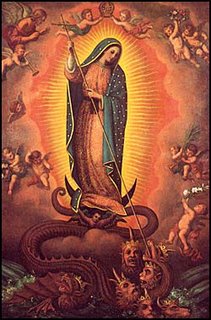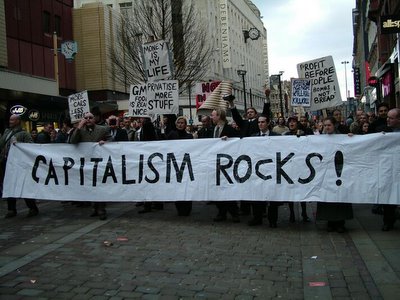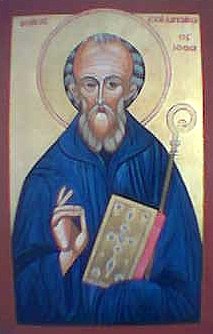
Spearheading the Revolution in Hollywood: Mel Gibson's Latest Work of Genius
Today the first glimpse of Gibson's new film Apocalypto hit the web. Up to this point, we have only heard that the film is set about 500 years ago, in Aztec society and filmed almost entirely in the dead Aztec language. What could this be about? What happened about 500 years ago among the Aztecs that would be of any interest to us? What is the image of the Apocalypse that was and is so powerful today???
Here's a bit of a hint . . .
Could it be that Apocalypto is about Our Lady of Guadalupe as seen from the perspective of the Azetec Empire and those who opposed the vision that brought an end to this civilization?
Think about it for a moment . . .
What was Aztec civilization like when Our Lady of Guadalupe appeared to Juan Diego? Here is a passage that describes the "civilization":
In the Americas, five centuries ago, cruel human sacrificing rituals were
performed in the Aztec empire. Between 20,000 and 50,000 were sacrificed a year. The rituals included cannibalism of the victims limbs. Most of them were
captives or slaves, and besides men they included women and children. The early
Mexican historian Ixtlilxochitl estimated that one out of every five children in
Mexico were sacrificed. The climax of these ritual killings came in 1487 for the
dedication of the new and richly decorated with serpents temple of
Huitzilopochtli, in Tenochtitlan (now Mexico City), when in a single ceremony
that lasted four days and four nights, with the constant beating of giant drums
made of snakeskin, the Aztec ruler and demon worshiper Tlacaellel presided the
sacrifice of more than 80,000 men.
How horrible and vile, yet this "great" civilization produced pyramids and profoundly accurate archeo-astronomy with a calendar system that is accurate up to the year 2012! The co-existence of great advances in science and learning with demonic culture is nothing new. We read about the empire of the Caininites who sacrificed their children to the demon Molech.
This co-existence of great advances and great depravity should come as no surprise to us in the United States. We murder somewhere in the range of 1.3 million babies in utero every year and call this "progress" and the advancement of women.
Like it or not, there are parallels between the Aztecs and our beloved United States of America. The Aztecs were the most technologically advanced empire in the Americas; today the US is that most advanced political and cultural power. The Aztecs had involved themselves in a demonic culture that had an unquenchable thirst for human sacrifice; in the US today, we will murder several thousand babies in the womb and we are living in what John Paul II called a "culture of death".
All cultures imply at the heart of it a ritual "cult", what is the cult behind America's current cultural fetishes? It isn't the Virgin Mary. If you Google the term "Molech", among the top level results is a disturbing link regarding just such a cult in American and Internationally. Yes, the site is managed by a conspiracy theory monger, so read it only with great discernment. Anyone who has read Michael O'Brien's novels published by Ignatius Press, will know what this is getting at.
The fascinating implication of Mel's new work, if indeed he is making a film about the end of a civilization as heralded by the Virgin of Guadalupe, is that the film would be an allegory of American civilization today. As Mel explores what a great civilization looks like at the height of its interior decay, he will be holding up a mirror or a kind of Portrait of Dorian Gray to the American soul. In being disgusted by what we see, we will be seeing ourselves.
The teaser using the following quote to set the subject matter of the film:
"A great civilization is not conquered from without, until it has destroyed itself from within" - Will Durant
In the teaser, there is a shot of Aztecs with ornate body piercing and gaudy decorative embellishments upon them. It is reminiscent of the King Herod scene in the Passion - a glimpse of the decadency of a culture totally caught up in its own love of self - vanity. When stopping into my local coffee shop, the guy behind the counter has a similar ring through his nose and standing behind me is a women with obvious plastic surgery. This is a film as much about modern America as it is about the Aztecs.
Our country is experiencing a similar confrontation between the forces of life and the forces of death that the Aztecs must have experienced in the aftermath of Our Lady of Guadalupe's appearance. The Aztec powerful elite were not going to simply surrender - there was most likely a dramatic series of events before this demonic civilization was no more. Looking at Mel's teaser, it looks like this story is about those events. And if it is about those events, it is also about our time. Look at the great battles of civilization taking place today in America: the right to life, the right to freedom of religion, the attack on the family, etc. just open the paper or turn on the TV and it is obvious we are in a pitched culture war - a war of Cults and when it is all said and done, there are only two - Christ's and the Enemy's.
Our Lady of Guadalupe appeared to Juan Diego and this serpentine culture was crushed. Some 9 million Aztecs converted to Catholicism in a matter of years (as the Church lost about 5 million due to the mis-adventures of Luther, Calvin & Co.). What we see in this amazing fact of history is a battle between the Virgin and the Dragon of Revelations/Apocalypse 12. Where we see a great battle between a women "clothed with the sun, with the moon under her feet, and on her head a crown of twelve stars" and a child devouring "huge red dragon." This is the epic battle that is fought in every heart and every generation, only at some times the battle becomes more obvious and apparent. The story of the fall of the Aztec Empire is the story of the victory of the Virgin and her son - the Lamb of God.
John Paul II named Our Lady of Guadalupe as the patroness of the New Evangelization. I think Mel is paying close attention. He is a member of God's Revolution, and that means he is putting himself out there. Let us all pray for him, because if this is indeed a story about the battle of the Apocalypse - the story of the fight between the demonic worldly powers of darkness and the power of a Virgin birth - then Mel Gibson will come under tremendous attack, both spiritual and mortal.
We must pray for him, it is the least we can do!
PS: If this film does turn out to be about Our Lady of Guadalupe, just think of the impact that will have on American Evangelical Christianity (who love Mel) - could this film make a further impact on growing current of flow across the Tiber and home to Rome? What impact will that have for the future of America and our World? Hope and Pray!



